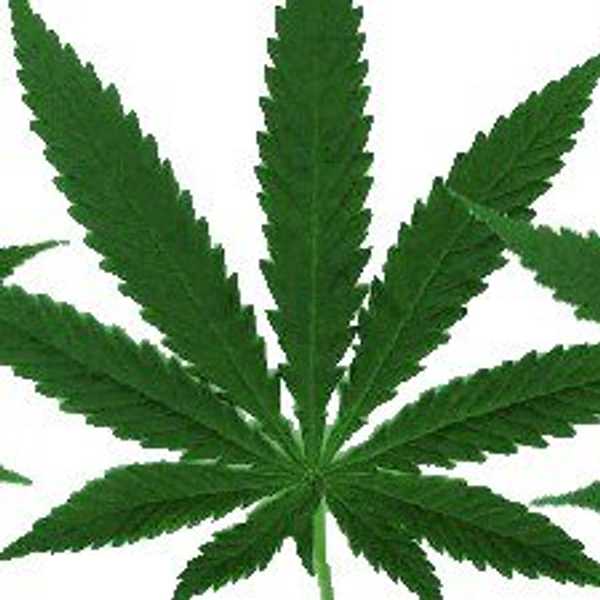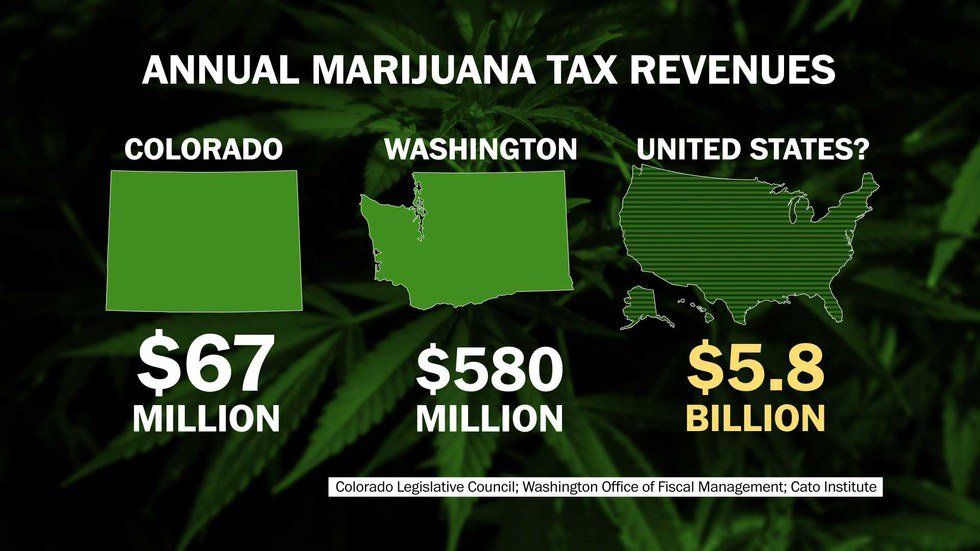With 25 states currently possessing laws legalizing marijuana in some form, and four fairly large states with legalized marijuana for recreational use, marijuana usage has become more decriminalized than ever.
Alaska, Colorado, Washington, Oregon and the District of Colombia all possess some laws permitting the transportation of marijuana across state borders. Among the 25 states with legalized medical marijuana are Arizona, California, Nevada, New York and Illinois.
Despite only four states, and the District of Colombia, there are 21 states that have decriminalized marijuana possession and usage. Among these 21 states include: New York, California, Nevada and Oregon.
The National Organization for the Reform of Marijuana Law defines decriminalization as no arrest, prison time or criminal record for the first-time possession of a small amount of marijuana for personal consumption.
Throughout the past four generations, including The Lucky Few (born from 1923-1942), the Baby Boomers (born from 1943 to 1962), Generation X (born from 1963 to 1982) and the Millenial generation (born from 1983 to 2002), the Millennial generation comes second to baby boomers in marijuana consumption from the ages 20 to 30.
Although the millennial generation don’t technically have the highest marijuana consumption level for the past four generations, they do possess the highest percentage for painkiller use and abuse.
According to Centers for Disease Control and Prevention, people that use and abuse opioid painkillers are 40 times more likely to get addicted to – and eventually die from heroin.
About 12 percent of millennial adults near the age of 20 abuse painkillers while the other three generations strike at 6 percent and below. The millennial generation also come second to baby boomers in usage of psychotherapeutics, hallucinogens, tranquilizers and heroin near the ages of 20 to 30.
According to the National Institute on Drug Abuse, THC, the psychoactive tetrahydrocannabinol, primes the brain for enhanced responses to other drugs. Also, Centers for Disease Control and Prevention says that people who use recreational marijuana are three times more likely to be addicted to heroin – the highly addictive opioid killer.
Since the Woodstock Music Festival of 1969 in Bethel, York brought together 500,000 music and marijuana lovers, of which 450,000 utilized recreational marijuana, the cultural aspect of decriminalizing the drug began developing.
In 1971, daily recreational marijuana usage for Vietnam War soldiers reached 14 percent, according to the U.S. Department of Defense. Oregon became the first state to decriminalize recreational marijuana. The Drug Enforcement Administration was also founded by Nixon in 1973.
The Partnership for a Drug Free America began in 1986 and they released their “this is your brain on drugs” ad in 1987 which a man proceeded to crack an egg in a frying pan. The popular cartoon, Teenage Mutant Ninja Turtles also declared the message “drug dealers are dorks” as part of the dialogue for one of their shoes in 1991.
Decriminalization culture of marijuana also stood on the other side of the argument heavily within the 80s, 90s and early 2000s with the likes of music artists Bob Marley, NWA, 50 Cent, Snoop Dogg, and many more.
Movie and television decriminalization culture for marijuana during that same time period include: Cheech and Chong, Weeds, Harold and Kumar Go To White Castle, Dazed and Confused, Fast Times at Richmond High and Easy Rider.
Decriminalization of recreational marijuana within the last 30 years has transitioned from a culture created by movies, television and music to 21 states within the U.S. possessing decriminalization laws.
The high of this is that we are actually second to Baby Boomers in marijuana consumption. The low is that our generation doubles the other three generations in opioid painkiller usage – which increases the chance of addiction to heroin by 40 times.
Unfortunately, when compared with the Baby Boomers, the Lucky Few and Generation X, they have become the lesser of two evils in comparison to the opioid addiction of the millennial generation.
The statistics alone should convince our generation that maybe Frank Ocean’s mother is right about drugs – and marijuana particularly – making people “sluggish, lazy, stupid and unconcerned; or from the perspective of opioid prescription turned heroin addicts – dead.






















